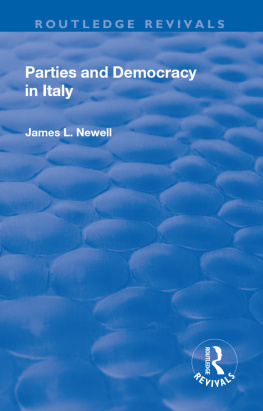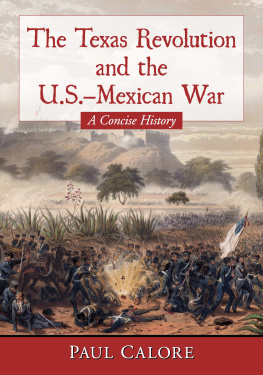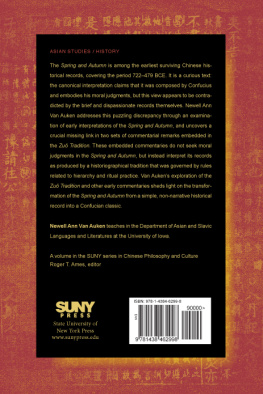TO THE READER.
THE following work is the result of a twelvemonth's residence in Texas, whither the Author repaired early in the Spring of 1837, for the benefit of his health. Three months of the twelve he spent at the capital of the Republic, exclusively and diligently employed in acquiring the information and material necessary for his work. He obtained valuable matter from documents in the War Department, and others to which he had access; and also, much important information from repeated conversations with several men distinguished in the war of 3536,of whom he will name His Excellency Gen. Houston, Gen. Lamar, Gen. F. Huston, Col. Poe, Col. Ward, Col. Neil, and Capt. Shackleford.
In the composition of his work, the Author has studied conciseness and perspicuity, more than eleganceto be useful, rather than original; and he submits to the Public the result of his labors, conscious that, in all he has written, he has endeavored to exhibit the truth.
INTRODUCTION.
MEXICO.
ABOUT the time of the establishment of the first American Colonists in Texas, Mexico had achieved her Independence of Old Spain. In 1821, Don Augustin Iturbide, a Royal officer, availing himself of half a million of dollars, with which he had been entrusted, and assisted by Guerrero and Victoria, revolted from the Spanish Government. The result was, in 1822, the assembling of a National Congress, and the establishment of a limited monarchy, in conformity with the plan of Iquala and the Treaty of Cordova. The Spanish Constitution was also provisionally adopted. The Executive Department was administered by a Regency, of which Iturbide was chosen President, who was also appointed Admiral and Generalissimo of the Army and Navy, with a salary of $12,000.
Serious dissensions soon arose between the Generalissimo and Congress, and the Regency were divided. One of its principal and most liberal members had a personal dispute, of great warmth, with Iturbide, during one of the sittings, in which the terms traitor and usurper were mutually passed. The friends of Liberty were alarmed at the ascendency which the Generalissimo had acquired over the military and the populace. On the night of the 18th of May, the soldiery and populace, headed by sergeants and corporals, proclaimed Iturbide Emperor. It was a night of violence, confusion, and uproar. The seven hundred bells of the capital pealed from the steeples of monasteries, convents, and churches; cannon and musketry were fired from the barracks; and the shouts of the populace proclaimed that a few soldiers and a city mob had taken it upon them to decide the fate of Mexico. The session of Congress on the 19th was held surrounded by bayonets, and the man who was thus proclaimed by a rabble, in darkness and tumult, was, by a decree of the Congress, declared to be Emperor of Mexico.
On the 31st of October following, the Congress was turned out of doors by an armed force, acting in obedience to a decree of the Emperor, which declared Congress to be dissolved, and which vested the legislative power of the nation in a Junta Instituyente, the members of which were nominated by himself.
On the 2d of December, Gen. Santa Anna, who commanded at Vera Cruz, raised the standard of opposition to the arbitrary proceedings of Iturbide; and on the 6th, in union with the civil authorities, of Vera Cruz, published a plan, the basis of which was the re-union of the Congress, which had been dispersed by the order of the Emperor, and a guarantee that its deliberations should be free from military restraint. Gen. Victoria, who had been imprisoned in November, 1821, by Iturbide, and had escaped in February, 1822, suddenly appeared from his retreat, and joined the Congress and Santa Anna party. A severe, though not decisive, battle was fought at Xalapa, between Santa Anna and the Imperial troops. About the same time, Generals Guerrero and Bravo also took the field in favor of the Congress. On the 2d day of February, the army, which was besieging Santa Anna at Vera Cruz, revolted from the Emperor, joined the besieged, declared for Congress, and published another plan similar to that of Santa Anna's, called the plan of Casa Mata. These events gave impulse to the Revolution, which spread through the provinces of Puebla, Oaxaca, and parts of Mexico. Other States, however, appeared to remain quiet; though, since the defection of Santa Anna, a general suspense and anxiety had prevailed, which was daily becoming more intense. On the 20th and 21st of February, information was circulated in the capital of a general defection of those parts of the nation which had till then remained passive, and Iturbide began to be publicly spoken of as an usurper. Early in February he had marched out of the city at the head of all the troops he could collect, and occupied a station at Istapaluca. But, finding that he could not rely upon his troops, and that the force marching against him from Puebla greatly exceeded his own, and was daily augmenting, he consented to a cessation of hostilities, and Commissioners were appointed to treat. The Commissioners met, and agreed, in substance, that the Emperor should retire to Tacubaya; that Congress should be convened as soon as practicable, and that all parties should submit to whatever it might dictate; that neither party should have troops in the capital; and that the necessary guards to keep order should be at the disposal of the civil authorities until the meeting of Congress. That body convened on the 29th of March, and decided that the Sovereign Constituent Congress of Mexico was in legal session, and that its deliberations were free from restraint; that the Executive power, which had existed since the 19th of May, 1822, had ceased. On the 31st, Congress decreed that the Executive power of the nation should be provisionally deposited in a body to be styled the Supreme Executive Power, to be composed of three individuals. On the same day Nicholas Bravo, Guadalupe Victoria, and Pedro Celestino Negrette, were chosen the Executive Power. A re-organization of the Government took place. On the 8th of April, Congress decreed that the coronation of Iturbide was an act of violence and force, and was null; and that hereditary succession, and all titles emanating from the Emperor, were null; and that all the acts of the last Government were illegal; and that, finally, Iturbide was forever banished from the Mexican territory, but that he should receive annually $25,000, (provided he resided in Italy,) and that after his death his family should have an annual pension of $8000.
On the 17th of June, 1823, Congress decreed that a new Constituent Congress should be elected by the people, for the express purpose of adopting the form of government, forming the Constitution, and organizing the nation, agreeably to the will of the people.
On the 19th of the same month, Congress passed a resolution directing the Supreme Executive Power to inform the people that the existing Congress were in favor of a Federal Republican system of Government.
The first Congress closed its sessions on the 30th of October, and the second, elected in virtue of the decree of the 17th of June, opened its sessions on the 5th of November. On the 31st of January, 1824, Congress decreed the Act of Confederation, by which the Federal system was formally adopted as the basis of the Government.







